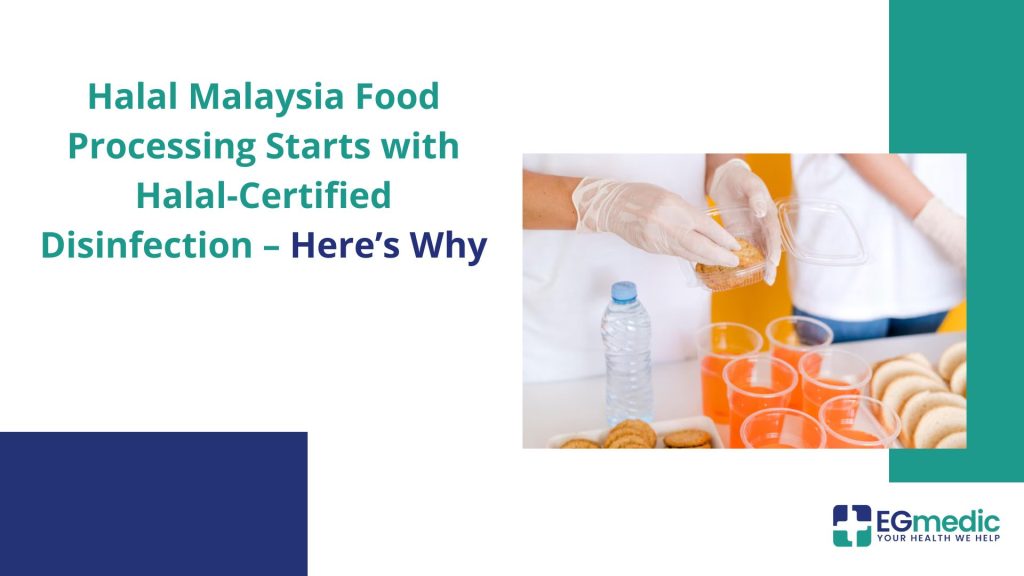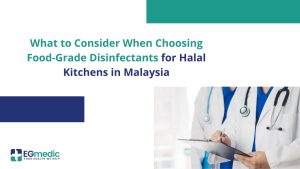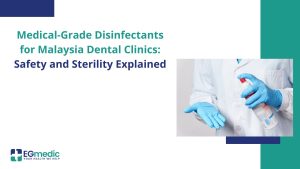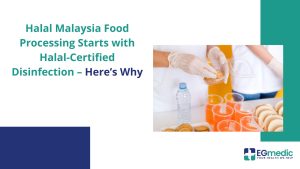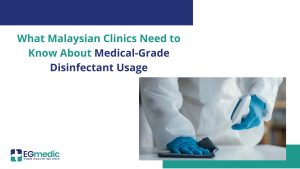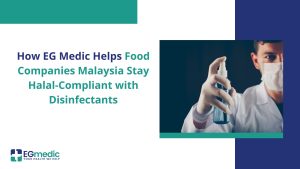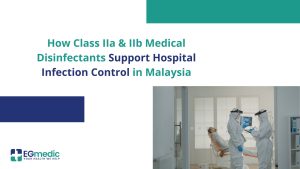The Role of Disinfection in Halal Food Certification
In halal food production, purity (taharah) is a central concept. Surfaces, utensils, and environments used for food preparation must be free from najis (impurities) to ensure the food is halal-compliant. According to JAKIM’s Halal Assurance System (HAS), all cleaning and disinfection products used in food facilities must also be halal-certified.
Failing to use halal-certified disinfectants could result in halal certificate suspension or revocation. This is why food manufacturers must take disinfection seriously as part of their halal commitment.
What Makes a Disinfectant Halal-Certified?
Not all disinfectants are created equal. For a product to be considered halal-certified, it must:
- Contain no animal-derived or alcohol-based ingredients unless derived from halal sources
- Be manufactured in halal-compliant facilities with strict cross-contamination controls
- Carry an official halal certification from a recognized authority like JAKIM
In addition, the product must be effective against foodborne pathogens such as E. coli, Salmonella, and Listeria, while remaining safe for food contact surfaces.
Using non-certified products not only jeopardizes halal status but also puts consumer trust and export opportunities at risk, especially in Muslim-majority markets like Indonesia, UAE, and the Middle East.
Conclusion
In Malaysia’s competitive halal food sector, using halal-certified disinfectants is not optional—it’s essential. It’s the first step in ensuring that the entire supply chain aligns with Islamic principles and consumer expectations. EG Medic is committed to helping food processors meet these high standards through certified, effective, and trusted disinfection solutions.

